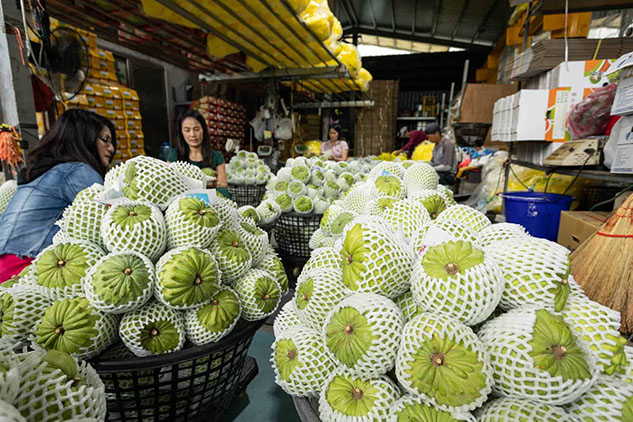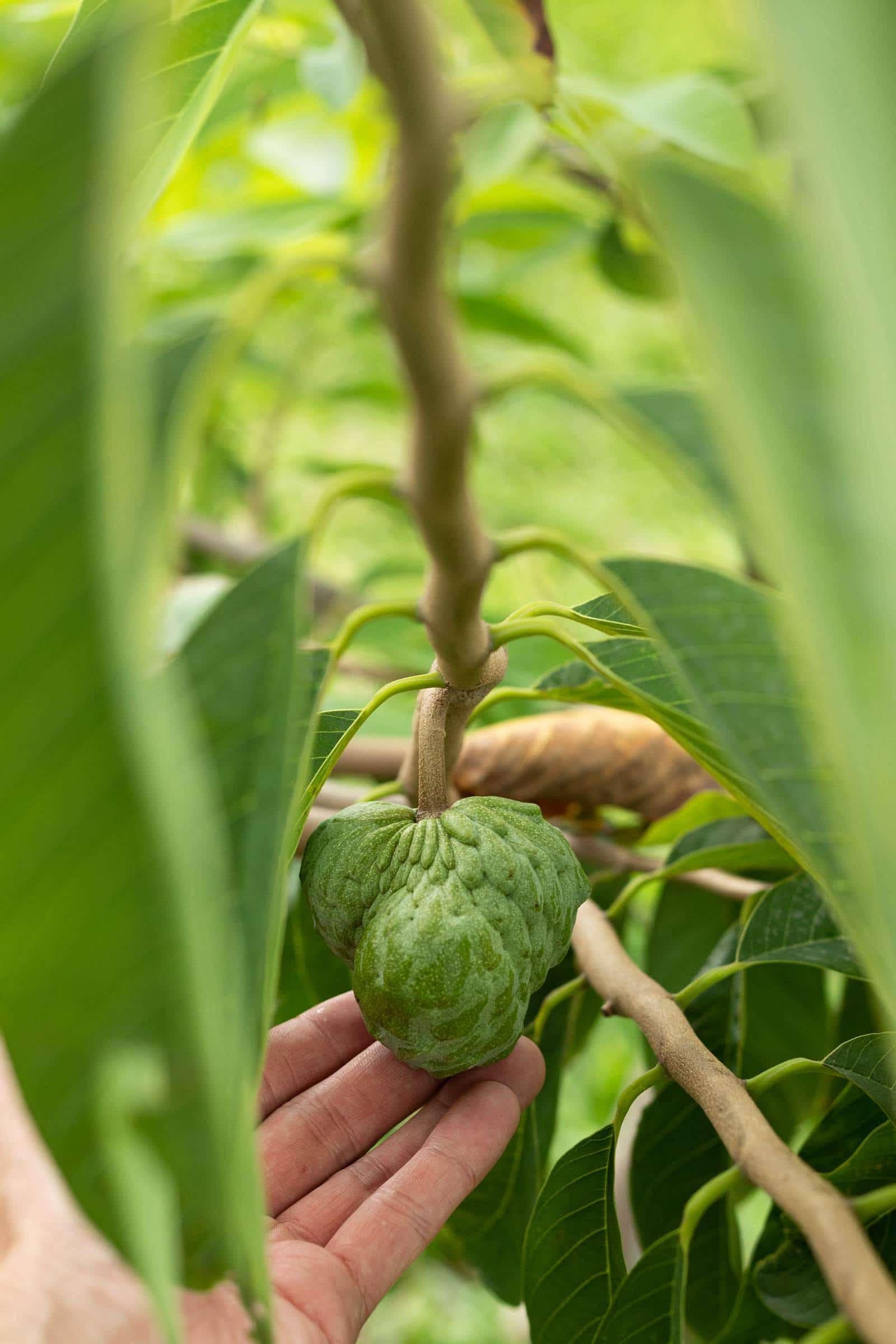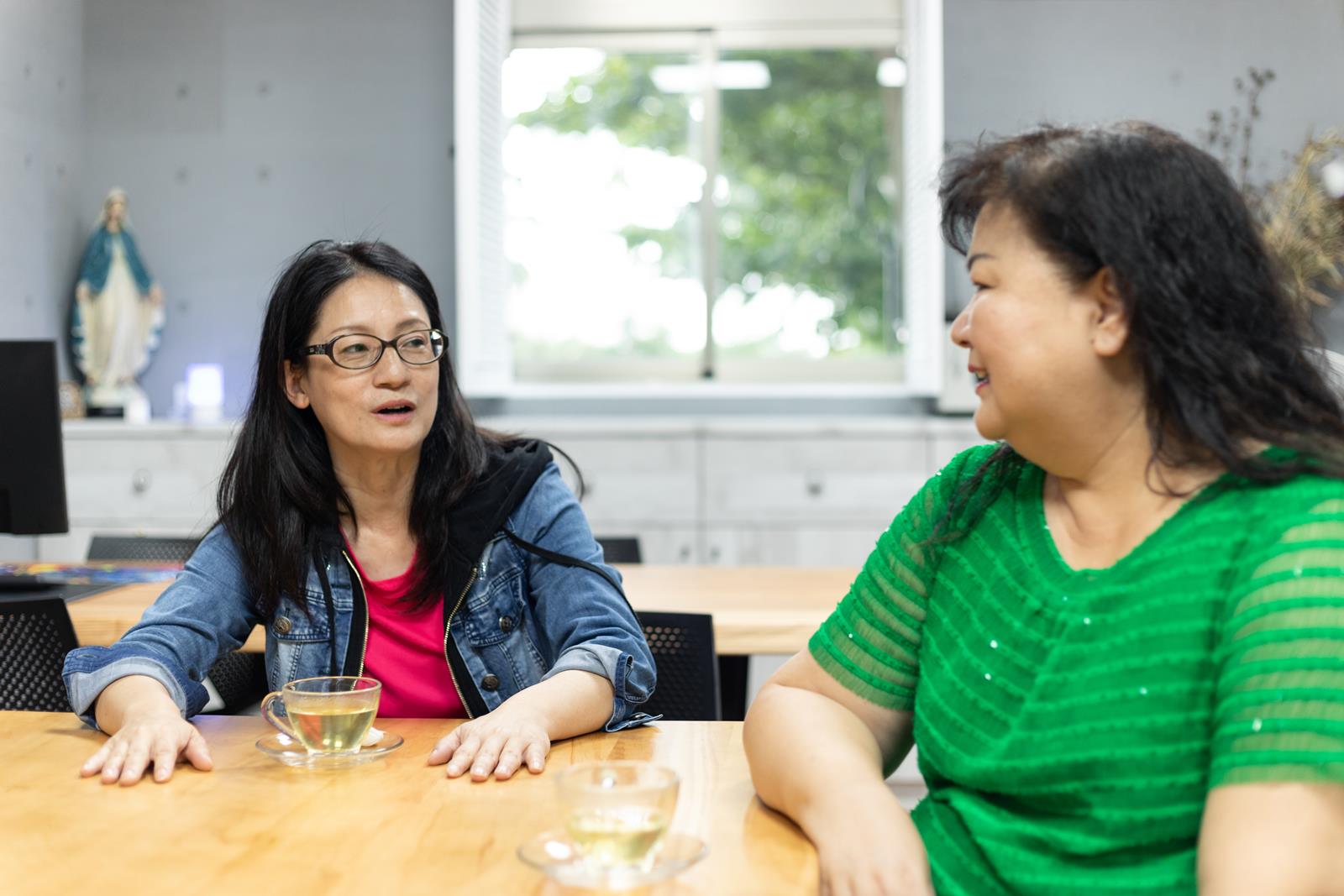How a Community Initiative Helped Taitung Custard Apple Farmers Solve a Pandemic-Induced Export Crisis

Source:Zhouqi Wu
A smartphone and a bunch of dedicated farmers and farm workers in Taitung is all it took to set up domestic sales channels for tons of custard apples originally destined for export to China. This is the story of how such a feat was accomplished in just 30 days after export markets broke down due to the coronavirus pandemic.
Views
How a Community Initiative Helped Taitung Custard Apple Farmers Solve a Pandemic-Induced Export Crisis
By Li-hsun Tsaiweb only
On January 23, one day before Lunar New Year’s Eve, China announced its first lockdown in the city of Wuhan, the epicenter of the COVID-19-pandemic. Within a week, nearly ten Chinese cities were locked down as well.
Yet as cities were locked down and transport came to a halt, farm products already sown, planted and cultivated continued to grow.
“On the first day of the Lunar New Year (January 25) the county magistrate began to contact me frequently,” notes Hsu Chia-hao, director of the Taitung County Government’s Agriculture Department, who had only assumed his job in November. Hsu admits that he was not aware at the time that the epidemic situation in China was intricately linked to custard apple exports from Taitung.
Taiwan sells about 97 percent of its domestic custard apple production to China. Custard apples are harvested between November and April, with January and February being the peak season. Originally, farmers in Taitung were scheduled to begin picking the sweet fruit on the third day of the Lunar New Year (January 27), with the first batches of packed fruit to be handed over to the trading companies for export on the following day. But due to the lockdown in China, everything ground to a halt.
The trees were standing full with ripe custard apples, covered in white paper bags to keep pests away. But as no one was harvesting them, one after the other they began to fall to the ground to rot.
As a result, the farm purchase price for custard apples dropped to NT$35 per Taiwanese catty (600 g) in late January from the previous NT$60, almost breaking the NT$30 price crash mark. If prices fell any further, the farmers were sure to face losses.

Fearing that the farmers would not be able to recoup their costs, the national and local governments decided in a first step to subsidize transport costs, which had soared in the wake of the lockdowns. In early February, the Taitung County Government and the Council of Agriculture announced a freight subsidy of NT$9 per kilogram of custard apples, which helped sell off two container loads of custard apples that had been stuck at the Jiangnan fruit and vegetable wholesale market in Guangzhou, on the following day.
From Cultivating Export Markets to Selling at Home
Since the freight subsidies proved effective, exports eventually only contracted by 10 percent year-on-year. But in late January, no one dared predict how the Chinese market would develop. Therefore, the Taitung County Government began to aggressively explore the domestic market.
The county government teamed up with Yang Chen-chi, director general of Taitung Industrial & Commercial Development Investment Committee, who knows all sales channels well. She not only mobilized supermarkets, hypermarkets and online vendors, she also spread the word on various social networks. Posting the mobile number of Hu Chuan, a custard apple packing plant manager, she left a message saying that anyone who is willing to help by buying custard apples should contact Mr. Hu.
Hu spent half his life as a custard apple farmer before opening the packing plant. Normally his business is export-oriented. When dealers place orders, Hu’s packing plant is basically at the top of the pyramid, in charge of contacting custard apple farmers across the county to harvest enough fruit to fill the orders.
Selling to local customers for the first time, Hu was unprepared for the effects of the online appeal: Within two days, he received thousands of phone calls and messages from ordinary citizens who wanted to place orders.
“When I went to buy [custard apples], the telephone kept ringing. I asked him (Hu Chuan) why he didn’t answer the calls, and he said he just can’t handle any more calls, so he doesn’t dare answer,” recalls Wu Hsiu-chen, head of St. Mary’s Health Farm, which is associated with the Taitung St. Mary’s Hospital. The hospital is located next to Hu’s packing plant. At the time, Wu bought 40 boxes of custard apples for the hospital employees. Hu told her with frustration that he just doesn’t have the time to answer all the calls and Line messages, and people were beginning to suspect that he was a fraud because they had remitted money but not gotten an order confirmation.
Ten People Taking Calls on a Single Mobile Phone
Witnessing Hu’s dire situation, Wu discussed the matter with the superintendent of St. Mary’s Hospital, who agreed to let ten farm employees transfer to Hu’s packing plant, since the farm remained closed due to the epidemic.
In order to take as many orders as possible, they put Hu’s mobile phone on the desk. When a call came in, they immediately jotted down the caller’s number and hung up to shorten the time during which the “order-taking number” remained busy. The ten employees then called the prospective buyers back from different telephones, confirming the quantity ordered and the recipient information. In this fashion, they were able to return 3,000 to 5,000 calls per day.
On day three, St. Mary’s Health Farm posted a Google form on its Facebook page to facilitate placing orders. When 6,000 boxes of custard apples were ordered within just 22 hours, they shut down the order form for fear of not being able to keep up with demand.
With ten employees using six landlines, Hu managed to sell 10,000 boxes in two weeks.
 St. Mary’s Health Farm Manager Wu Hsiu-chen (left) and Yang Chen-chi, general manager of the Industrial Development and Investment Promotion Committee of Taitung County (right)
St. Mary’s Health Farm Manager Wu Hsiu-chen (left) and Yang Chen-chi, general manager of the Industrial Development and Investment Promotion Committee of Taitung County (right)
While they had worried about poor sales in early February, a new problem cropped up in mid-February. Now dealers were outbidding each other to get their hands on the custard apples.
The pricing originally worked like this: traders would make a price offer, and farmers would decide to whom they sell their products. Propped up by the governmental freight subsidy, the dealer purchasing price paid to the farmers had then already recovered from a low of NT$35 to NT$60 per catty.
“All these export dealers were trying to get their hands on the goods,” recalls Yang. On day 10, St. Mary’s Health Farm no longer had enough custard apples to meet demand. Although the retail price for a 10-Taiwanese-catty box of custard apples had already risen above NT$1,000, Hu still kept selling to Taiwanese consumers at a price of NT$600 per box.
Loyalty Amid the Pandemic
They turned to the county government for help. Taitung County Magistrate Yao Ching-ling dispatched staff to the county’s three major custard apple production areas - Beinan, Luye, and Taimali - to source more fruit. However, the main reason why the local farmers were all too willing to support Hu was that he had demonstrated his loyalty to the local community by helping them out at the beginning of the coronavirus outbreak.
At the beginning of the pandemic, Hu had reached out to the custard apple farmers, explaining to them his cost structure in detail – such as packaging material and freight – and told them that he was willing to shoulder the personnel costs himself. Then he still offered them a purchasing price that was NT$5 above the farm price to buy up all the fruits that could not be exported as planned, and jointly overcome the crisis.
“A lot of people were laughing at him, but some felt he was really being a loyal friend, so they were willing to support him later on,” notes Yang. She shows off her notebook, where she has written down in great detail which purchasing price each packing plant accepted for which quantity of custard apples.
Wu admits that they originally had no idea that the purchasing price for custard apples is always fluctuating. They were without doubt undercutting fair market prices. “But in the beginning, we really didn’t know that,” she says.
This story of the Taitung custard apple farmers, the concerted 30-day effort of the county government and the private sector, shows that in the current epidemic we have a chance to overcome crisis if we selflessly work for the common good.
Have you read?
♦ COVID-19: How Taiwanese Companies Are Rethinking 2020
♦ Shin Yeh vs. Michelin-star Restaurant Mume: The Restaurant Sector Must Restart from Scratch
♦ How Taiwanese bubble tea brand continues global expansion during the pandemic
Translated by Susanne Ganz
Edited by TC Lin
Uploaded by Judy Lu






